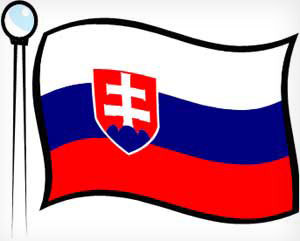Slovak Roma await the euro in poverty - and fear
 Spiske Vlachy, Slovakia - Shouting each other down, women hurl questions at a rare visitor to their hometown, a destitute Roma ghetto amid picturesque hills of central Slovakia.
Spiske Vlachy, Slovakia - Shouting each other down, women hurl questions at a rare visitor to their hometown, a destitute Roma ghetto amid picturesque hills of central Slovakia.
"My father gets 3,500 koruny. How much is it in euro?" blurted Magdalena Horvathova, a chubby-cheeked 17-year-old with a baby in her arms.
"Will there be twenty and fifty notes?" asked a raspy-voiced grandmother with two braids emerging from underneath a yellow scarf.
"I am afraid of the euro," said 55-year-old Ruzena Mizigorova, her eyes welling up. "I am not smart enough to count those coins. We will get cheated in the stores."
As Slovakia adopts the euro on Thursday, about a third of country's 500,000 Roma, living in decrepit huts without running water or flushing toilets, many of them illiterate, are among those least excited and most confused.
Seen as a safe haven amid looming economic crisis, the euro approval ratings in Slovakia climbed to 58 per cent in the weeks before the switch, a survey for the Hospodarske Noviny business daily showed.
But the opinion poll also revealed that Europe's common currency is unpopular among the poor, who fear it will bring a spike in prices - although the leftist government of Prime Minister Robert Fico pushed through a law threatening to punish excessive rise in prices with up to three years in prison.
The Roma remain fretful despite government efforts to promote the currency change, which included a 40-stop tour by professional Roma theater troupe named Romathan to gypsy slums in the Slovak countryside.
But when the traditionally-clad actors recently performed their skits and songs explaining the euro in a special-school gym in Spisske Vlachy, a town of 3,500, no parents from the nearby Roma ghetto of Dobra Vola showed up. "We have to pay for their bus fare to bring them to school," a teacher sighed.
Inside one of the ghetto's crude kitchens crammed with children and neighbours, 29-year-old mother of seven, Lydia Horvathova, shrugged her shoulders. "My son is ill so I did not go. Who would look after the kids?" she said.
As she talked one of her toddlers spooned watery pasta with his tiny hand from a pot sitting on the floor.
With an estimated population of 10 million, the Roma, also known as gypsies, are Europe's largest and most marginalized minority.
European governments east and west have failed to lift the Roma from poverty and ease tensions between the originally nomadic nation and the majority. On the contrary, anti-Roma attitudes have flamed up in recent months across the continent.
Italy introduced plans to fingerprint the Roma immigrants living in squatter camps, Czech right-winger radicals picked running fights with police to enter a Roma ghetto, while several Hungarian Roma were killed or injured in attacks on their homes.
After the performance in Spisske Vlachy, the troupe's principal Karel Adam recalled an incident two years ago in which two local restaurants refused to serve the actors.
"I've never experienced anything like this and we've travelled the whole of Europe," he said. "It is no good when a gypsy is dirty. It is suspicious when he is well-dressed."
At the special school, a teacher patiently explained the new currency's value to a group of eighth-graders - all of them Roma from a local children's home - busy painting pictures of the new bank notes.
"We can't buy anything for 20 koruny. For 20 euros you can buy a sweatshirt, jeans, even sneakers," said 15-year-old Miroslav Dunka, who dreams of becoming a cook.
Only a few kilometres away, in the village of Bystrany, fear of the euro is nowhere to be found.
Since Slovakia joined the European Union in 2004, about a quarter of the local 2,200 Roma have shuttled between their hometown and the British cities of Sheffield and Peterborough, where they say they work manual jobs in hospitals, bakeries and factories.
The new money is omnipresent in feverish construction across the town and flashy hip hop fashion trends. "We already know pounds. We are not worried," said 34-year-old Margita Sandorova with a big smile. (dpa)